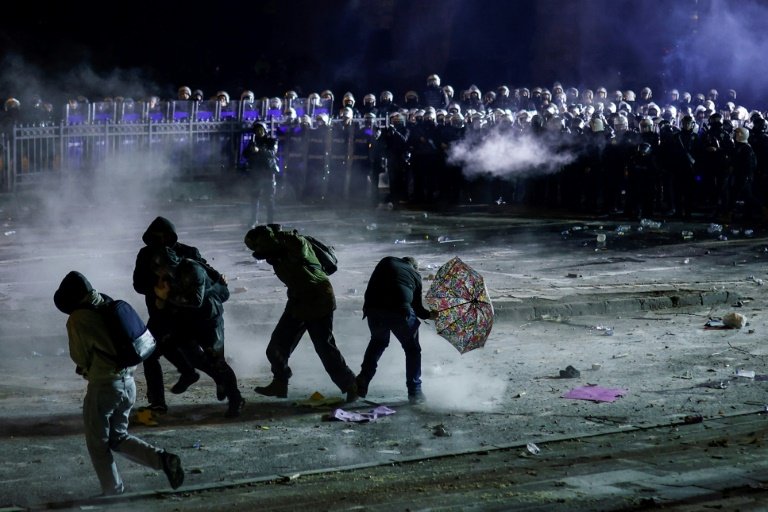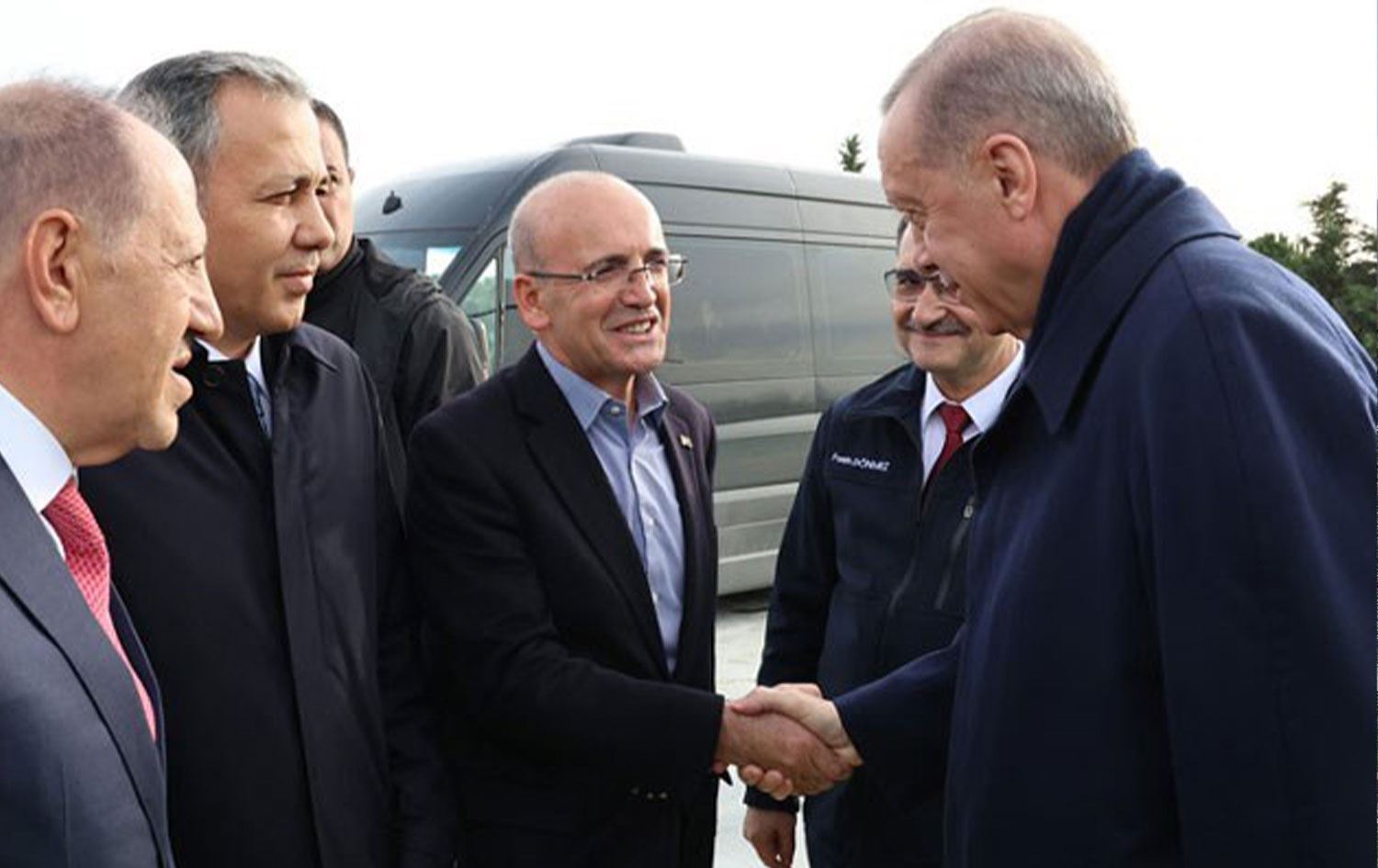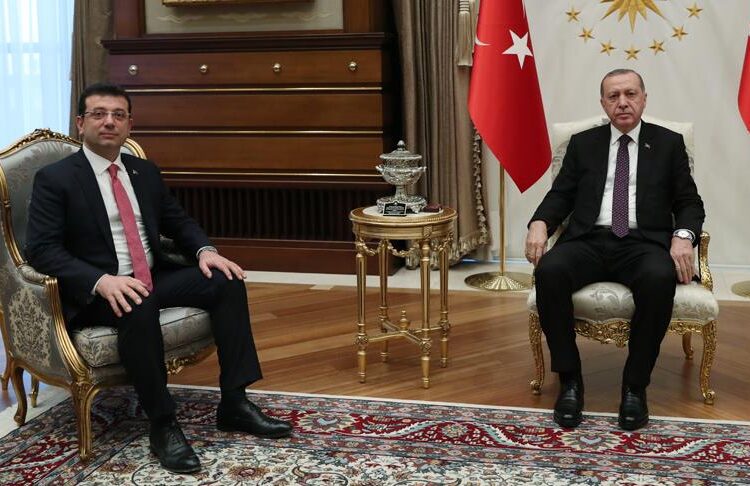Levent Kenez/Stockholm
Turkish President Recep Tayyip Erdogan’s aggressive political maneuvering to eliminate his chief rival, Istanbul Mayor Ekrem Imamoglu, from the presidential race is triggering deep political unrest and inflicting serious damage on Turkey’s economy, analysts and financial data suggest.
Imamoglu, the newly declared presidential candidate of the main opposition Republican People’s Party (CHP), was detained on March 19 and arrested on March 23, in what opposition leaders and rights groups widely view as a politically motivated. He remains in pretrial detention, with government prosecutors citing corruption and terrorism-related charges — allegations Imamoglu and his party have denied.
The move is seen by observers as a critical step in Erdogan’s escalating strategy to suppress dissent and eliminate viable opponents ahead of elections. But it may come at a steep economic cost.
According to economist Selva Baziki of Bloomberg Economics, the Central Bank of the Republic of Turkey (CBRT, or MB in Turkish) aggresively intervened in the foreign exchange markets in the weeks following Imamoglu’s arrest. Between March 19 and April 10, the central bank’s net reserves fell by $42.2 billion, while gains from rising gold prices and export revenue added an estimated $6.5 billion. This suggests the CBRT may have spent up to $49 billion trying to stabilize the Turkish lira.
“The central bank’s aggressive intervention reflects rising financial instability, partly triggered by political actions against opposition figures,” Baziki wrote on social media.
Government data support Baziki’s analysis. Gross reserves dropped from $154.3 billion to $147.5 billion in the week ending April 11, a $6.8 billion decline. Net reserves also shrank from $48.7 billion to $38.9 billion during the same period.

When excluding swap agreements, net reserves fell to just $20.8 billion, raising alarm about the CBRT’s ability to weather further external shocks.
The political turmoil has also shaken investor confidence. On April 16 Rasim Ozan Kütahyalı, a pro-government commentator with alleged links to Turkish intelligence, claimed on live television that the government intended to appoint a trustee to take over the main opposition CHP, based on what he described as state-sourced intelligence. He alleged that the move was tied to procedural irregularities during the party’s November 2023 general congress, in which Özgür Özel was elected chairman. The rumor triggered immediate market turbulence, causing a sharp collapse in Borsa Istanbul’s futures market.
Kütahyalı was detained hours later, accused of publicly disseminating false information, a rare public rebuke against a loyalist. Even Devlet Bahçeli, leader of Erdogan’s partner, the Nationalist Movement Party (MHP), publicly criticized the trustee proposal, calling Kütahyalı one of the “demons among us.”
Following Mehmet Şimşek’s appointment as treasury and finance minister in May 2023, Turkey had become attractive to foreign investors. Many had been taking advantage of Turkey’s high interest rate environment through a strategy known as carry trade.
They brought capital into the country, converted it into Turkish lira and deposited it in high-yield instruments. After maturity, they would convert their returns back into foreign currency, often earning significant profits due to favorable interest rate differentials.
As foreign capital poured in, carry trade positions peaked at $36.5 billion by mid-March. But since Imamoglu’s arrest, foreign investors have been pulling out. Data from the Banking Regulation and Supervision Agency (BDDK) and the CBRT indicate that $13.2 billion exited carry trade positions in four weeks, bringing the total to $23.3 billion by April 11.

Foreign swap holdings alone fell by $2.1 billion in the most recent week, reflecting growing fears of political instability and state interference in markets.
However, Finance Minister Şimşek defended the reserve drawdowns in public remarks, arguing that reserves are “a buffer against internal and external shocks … they are meant to be used in times like this.”
Critics, including CHP Chairman Özel, have accused the government of weaponizing state funds for political survival. “The central bank’s reserves belong to 85 million people, not just Erdogan’s political ambitions,” Özel said at a press conference on April 11.
In an effort to stem the currency’s slide and control inflation, the CBRT on April 17 raised its benchmark interest rate from 42.5 percent to 46 percent — the third major hike this year. Overnight borrowing and lending rates were also increased to 44.5 percent and 49 percent, respectively.
Despite mounting economic warning signs, President Erdogan has shown no indication of altering his stance toward the main opposition CHP. Speaking at a recent party meeting, Erdogan remained defiant and appeared to suggest that further legal and political action against the CHP could follow. “They will not be able to show their faces when the big revelations come,” he said.
The president reiterated his argument that the entire judicial process against CHP-run mucipalities was the result of internal rivalries within the party, not government interference. “Why are you blaming us for a legal process that began because of your own internal conflicts?” he asked. “Why are you involving us in the race to inform on one another inside your party?”
Erdogan accused CHP leadership of failing to respond to prosecutors’ allegations and attempting to cover up internal scandals by “inciting unrest” and “plunging the country into chaos.” He alleged that the party was defending individuals implicated in corruption and shifting the political cost of bribery schemes onto voters.
“They are angry, not at the ones who stole, but at those who caught them,” Erdogan claimed. “They defend people involved in corruption. Now they are trying to make the public, whom they’ve dragged into the streets, pay the price for the extortion and bribery networks established by their mayors.”
Pro-government media outlets have been publishing daily corruption allegations targeting Imamoglu and CHP-run municipalities in recent weeks. The sustained media campaign has intensified since Imamoglu’s arrest, with headlines frequently accusing him and his political allies of bribery, abuse of office and financial misconduct.

However, public opinion appears increasingly skeptical of the official narrative. According to recent surveys in the Turkish media, a significant majority of respondents believe that Imamoglu is behind bars for political reasons, not due to credible criminal charges. Analysts interpret this perception as a growing disconnect between the government’s messaging and voter sentiment.
The MHP’s Bahçeli also appeared to distance himself from the current course of action. In a statement made on Tuesday, Bahçeli called for a swift and transparent resolution of the legal process surrounding Imamoglu. He emphasized that any judicial action must be supported by genuine and convincing evidence and urged authorities to ensure that the public is persuaded beyond doubt.
In addition to Imamoglu, five other CHP-affiliated mayors are in pretrial detention. Trustees have been appointed to oversee municipalities in several densely populated districts of Istanbul — Şişli and Esenyurt — both strongholds of CHP support and home to millions of residents.












